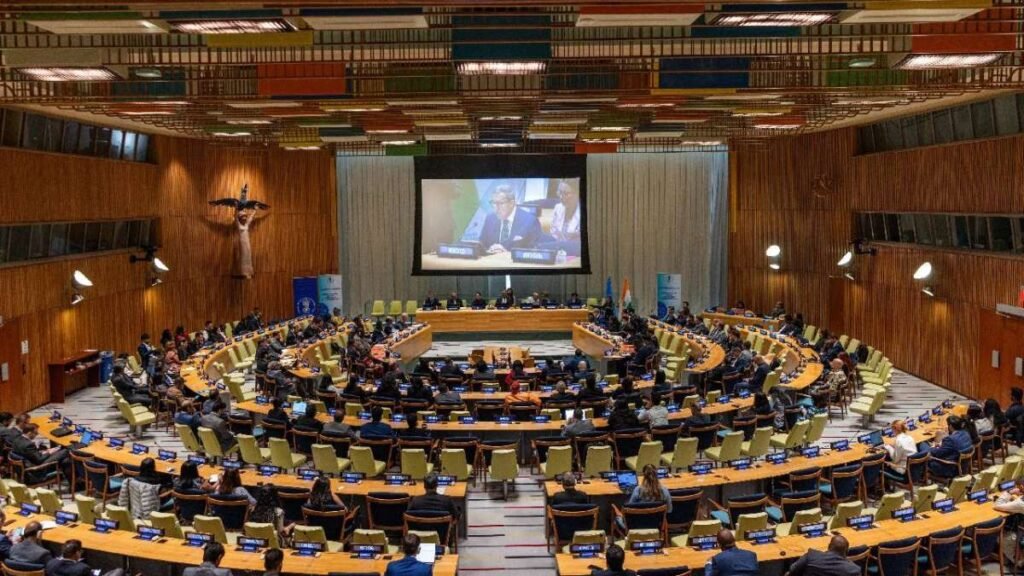Pakistan called the meeting in a vain attempt to pressurise India amid escalated tensions and the suspension of the Indus Waters Treaty.
In a major setback to Pakistan amid heightened tensions with India after the Pahalgam terror attack, the United Nations Security Council (UNSC) called on Islamabad’s request concluded without any outcome or declaration early Tuesday.
No statement was issued by the UN Security Council, no press release was released, and none of the participating delegates made any remarks. The meeting began on Monday afternoon at the UN headquarters in New York.
The development comes after Secretary General Antonio Guterres voiced concern over tensions between the nuclear-armed neighbours being “at their highest in years”.
The talks came on Pakistan’s request after India suspended the Indus Waters Treaty and curbed the flow of the Chenab and Jhelum rivers into Pakistan by closing dams in Jammu and Kashmir.
Unlike formal sessions held in the UNSC Chamber—where members convened around the iconic horse-shoe table—this consultation took place in a separate room next to the chamber.
Pakistan is currently a non-permanent member of the powerful 15-nation Security Council. Greece, the president of the Council for the month of May.
Pakistan’s Permanent Representative to the United Nations, Asim Iftikhar Ahmad, once again misused the UN Security Council platform to spread false claims against India. In an attempt to divert attention from the Pahalgam terror attack that killed 26 civilians, Pakistan brought up the Kashmir issue, accusing India of military buildup and making provocative statements.
Ahmad also termed India’s recent suspension of the Indus Waters Treaty an “act of aggression,” in what India sees as a deliberate attempt to shift global focus away from Islamabad’s role in supporting cross-border terrorism.
Pakistan’s failed anti-India attempts at UN
Before the UN Security Council meeting, India’s former Permanent Representative to the UN, Ambassador Syed Akbaruddin, told PTI that no “consequential outcome” could be expected from a discussion where one of the parties involved tries to influence perceptions by using its Council membership. “India will parry such Pakistani efforts,” he stated.
A similar situation occurred in August 2019, when China called for closed-door UNSC consultations following India’s decision to revoke the special status of Jammu and Kashmir. That meeting also concluded without any outcome or statement from the 15-member Council, delivering a major setback to Pakistan’s attempt, supported by Beijing, to internationalise the Kashmir issue. Most Council members reiterated that the matter should be resolved bilaterally between New Delhi and Islamabad.
